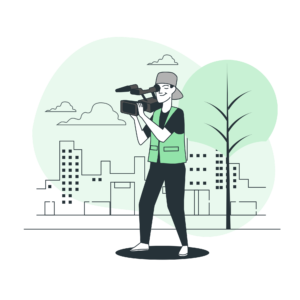There are going to be total of four Intellectual Outputs in Eco-systems of Open Science Schooling project.

IO 1 – ECO-SYSTEMS OF OPEN SCIENCE SCHOOLING – THE GUIDANCE PACK
A comprehensive guidance material from the 3 different perspectives of the eco-systems: schools, students/teachers and community collaborators. The Guidance Pack to secondary schools and science teachers is the most important outcome of the project. The Guidance Pack is missioned to provide science teachers with methodologies, inspiration and good practices that will allow them to take the first steps to establish open science schooling activities in the community, and will at the same time guide the schools towards establishing permanent eco-systems of science collaboration with relevant science and other resources in the community.
The material will include a variety of narrative forms, such as texts, videos, illustrations, interviews and authentic cases.
Key target groups:
- secondary schools
- science teachers
- science in society stakeholders
- science learning research communities and
- science learning frame workers such as policy-makers
IO 2 – HOW WE LEARNED SCIENCE THROUGH THE ECO-SYSTEMS – THE STUDENT VIDEO
The student teams will create raw material from their science learning missions in collaboration with the new eco-systems, and this raw material will be elaborated and edited during the student mobility towards the end of the project. The result will be a 20 minutes video movie created by the students and will explain in the most authentic way possible how they learned in interaction with the eco-systems of open science schooling, and how this learning is different from traditional science teaching. The video will be heavily shared in the young people’s social and gaming networks.
Key target groups:
- students in secondary schools and in the global social and gaming networks
- science teachers and
- science research communities.
IO 3 – POLICY PAPER: WHAT (MORE) DOES IT TAKE TO MAKE OPEN SCIENCE SCHOOLING A REALITY?
- Open science schooling as re-thinking science learning or as “modernisation” and entertainment?
- The capacity of secondary schools to build eco-systems of open science schooling in the community – what does it take?
- Are science resources in the community willing to be co-responsible for re-engaging young students in science learning and a life in science – what’s in it for them?
- To what extent can open science schooling be integrated in the science curricula and how can open science schooling be assessed?
- How deep, immersive and exciting must the science missions be to engage or re-engage young 21st century students?
Key target groups:
- national and European policy-makers in the field of science education
- science learning research communities and
- European funding programmers
IO 4 – RESEARCH PAPER: WHAT (MORE) NEEDS RESEARCH AND EXPERIMENTATION TO MAKE OPEN SCIENCE SCHOOLING A REALITY?
The project’s research paper (IO4) aims to identify open science schooling challenges that need to be addressed in the form of European funding priorities. In particular, within the new Erasmus+ programme, the research paper will, summarising the practical experience from ECO-SYSTEMS OF OPEN SCIENCE SCHOOLING and similar projects, identify important research needs in the field of open science schooling and eco-systems of open science schooling.
What will be the content of the research paper? The project will identify and summarise the most important challenges in the fields of open science schooling and eco-systems of open science schooling that need focused and dedicated investigation and research – based on the practical experience from the ECO-SYSTEMS OF OPEN SCIENCE SCHOOLING and similar projects.
The ultimate aim of this activity is to identify knowledge shortages and the resulting guidance that prevent schools and science teachers undertake open science schooling initiatives and prevents educational authorities support such initiatives. The problem is, and this defines the need for the paper, that open science schooling in Europe is still at entrance level, producing mostly practical experience from punctual out of school activity and similar “modernisation”. Little real experience has been produced from authentic and full-scaled open science schooling initiatives across Europe. Therefore, it is of great importance to identify what kind of experimental research is needed in the near future in the field of open science schooling and eco-systems.
Without falsely anticipating the project findings, it is possible to foresee at least 5 categories of major topics that the project experience is expected to identify for further and in-depth experimental research:
- What must characterise open science schooling activity to engage and re-engage young students in science learning? What are the major criteria? And what does it take to allow young students to integrate science as a positive value in their identity creation?
- What characterises the open schooling learning processes compared to traditional science teaching?
- How can schools become “agents of change” (OECD) in the community and how can this lead to eco-systems of open science schooling?
- Which motivational factors can dedicate science resources in the community to participate in ecosystems of open science schooling? What roles might “responsible science” play in this context?
- How can schools and eco-systems integrate local and global science missions for the students, allowing students to be motivated through the use of their own social and gaming networks?





